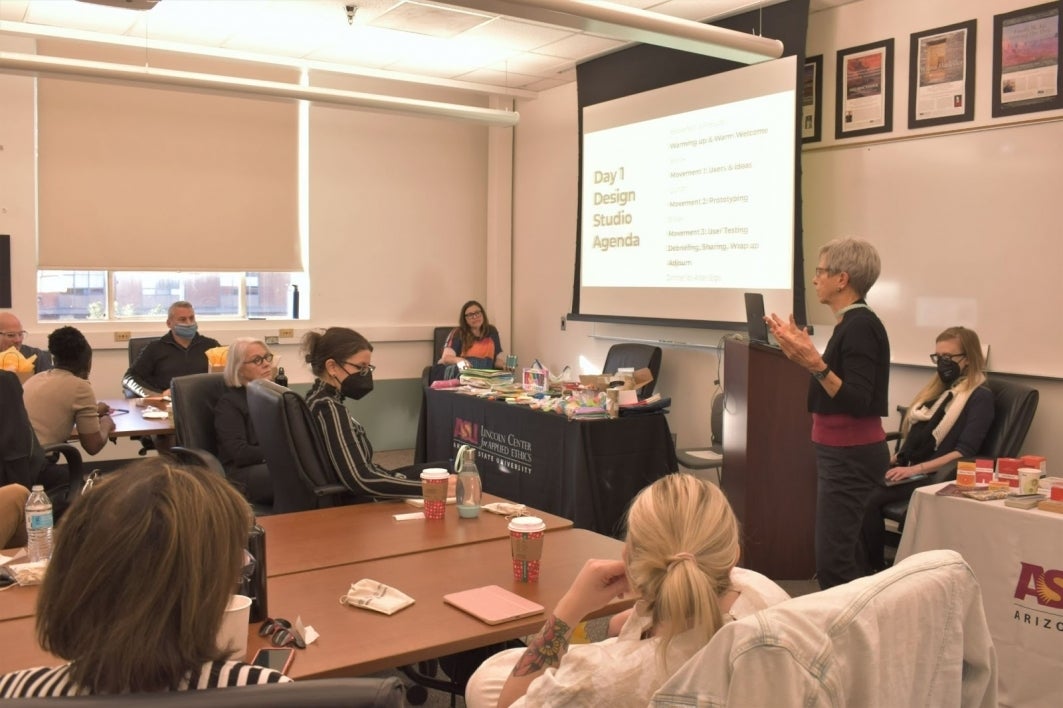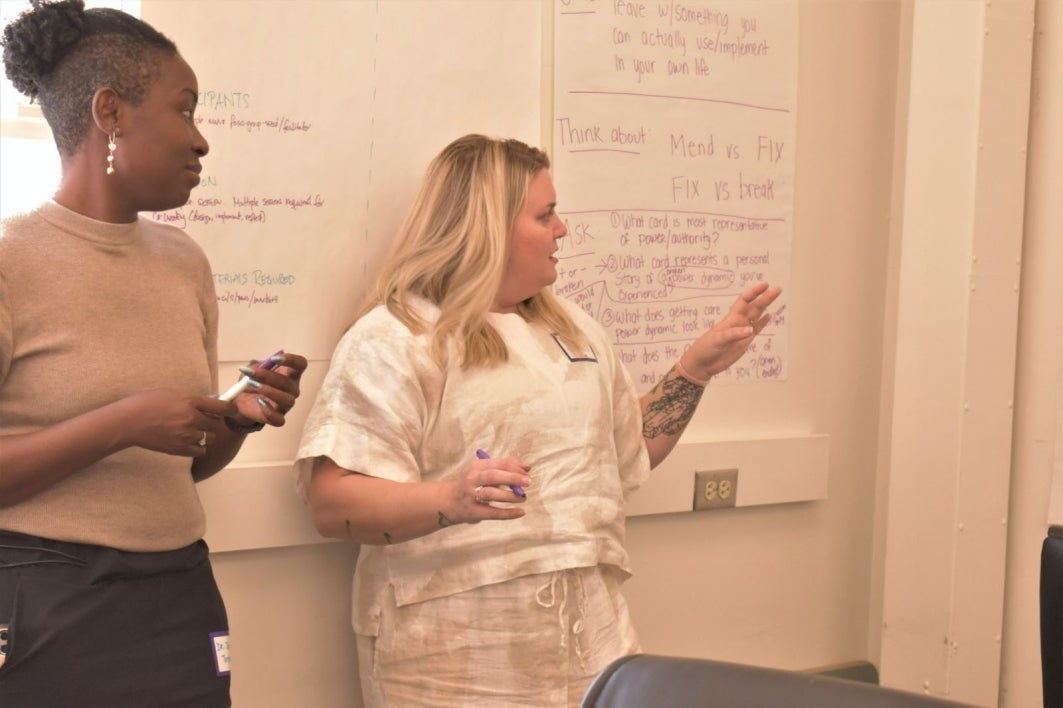On healing and tools for mending

Central to the in-person meeting was the Humane Technology Tarot Deck, released by the Lincoln Center earlier this fall. Conversations with the Humane Tech Design Studio cohort inspired the creation of the card deck, and the in-person gathering presented the opportunity for the cohort to develop reflective activities and generative opportunities for its use among diverse community groups. Photo courtesy the Lincoln Center for Applied Ethics
After nearly three years of virtual deep conversations around technology, ethics and our future, the Lincoln Center for Applied Ethics at Arizona State University held its first in-person Humane Tech Design Studio on Nov. 19 and 20.
The event brought together academics, technologists and changemakers to collaborate on the problems brought on by new technologies and intensified by the COVID-19 pandemic. Central to this in-person meeting was the Humane Technology Tarot Deck, released by the Lincoln Center earlier this fall. Conversations with the Humane Tech Design Studio cohort inspired the creation of the card deck, and the in-person gathering presented the opportunity for the cohort to develop reflective activities and generative opportunities for its use among diverse community groups.
“We’ve all felt a productive tension between the desire to get somewhere tangible through these conversations and the level of convergence around the ways we connect with one another,” said Gaymon Bennett, associate director of the Lincoln Center, during his opening remarks. “And so we began to think about things in our lives that have those properties of structure and orientation, but also openness, inventiveness and creativity."
Workshop participants collaborated through a series of movements to design experiences based around the card deck, and developed prototypes for interactive exercises centered on the themes of repair and trust. Host Tamara Christensen, founder of the Idea Farm Co-op, encouraged the participants to think both as designers and as people who would actually use the tools developed: “What narratives and stories about healing and mending can we find in the cards?”
The designs were geared toward two subsets of users: people who were trying to figure out how to care and be cared for, and people who had lost trust in institutions and sought support from communities.
The workshop drew inspiration from play and creative inspiration card decks as a way to gamify important discussions around humane tech. Participants developed their prototypes over the course of several hours before presenting to a group of diverse test users who provided feedback for how the experience could be improved.
Training workshops utilizing the deck in the workplace and classroom, and expansions of new cards were discussed as potential future projects.
“Other groups are also talking about the kind of things we’ve been grappling with — tech, our dependence upon it — but are doing so in ways that are often less reflective and comprehensive than what we have explored over three days together,” said Elizabeth Langland, director of the Lincoln Center. “We look forward to advancing initiatives that build upon the sophisticated thinking this workshop has generated and that allow us to contribute meaningfully to ongoing discussions about humane technologies and ethical innovation.”
More Arts, humanities and education

ASU’s Humanities Institute announces 2024 book award winner
Arizona State University’s Humanities Institute (HI) has announced “The Long Land War: The Global Struggle for…

Retired admiral who spent decades in public service pursuing a degree in social work at ASU
Editor’s note: This story is part of coverage of ASU’s annual Salute to Service.Cari Thomas wore the uniform of the U.S. Coast…

Finding strength in tradition
Growing up in urban environments presents unique struggles for American Indian families. In these crowded and hectic spaces,…

